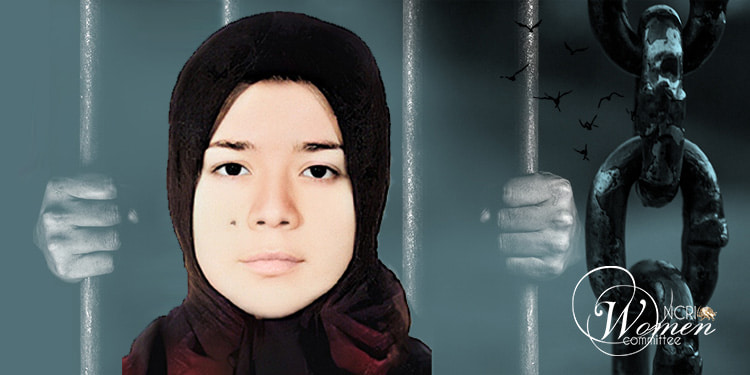From the memoir by Hengameh Haj Hassan
In this part of Hengameh Haj Hassan’s prison memoirs — she was a nurse at Sina Hospital in Tehran in 1981 — published in Face to Face with the Beast, the author recounts her reunion with her dearest friend, Shekar Mohammadzadeh, who had endured the unbearable torture known as the Residential Unit. She also describes a new method the torturers devised to destroy the human spirit.
Reunion with My Beloved Shekar
Night fell, and just as we had guessed, it happened — they called out the names of our ten-person group and lined us up behind the ward door. A newly arrived female guard asked, “Which one of you is Hengameh?”
“I am,” I said.
She didn’t respond — just looked at me, as if to make sure I was there. Then she said coldly, “Due to failure to follow ward regulations, you’re being transferred to Ward 8.”
I wanted to shout for joy. Oh God — I’m going to see Shekar!
I could barely contain myself from screaming it aloud.
We started toward Ward 8. I wanted to run, but we had to keep in line. As soon as the door opened and we stepped inside, the whole ward exploded in joy!
Oh God — most of the girls from Ward 7 were here!
My shoes were in my hands, my chador had slipped off and tangled around my feet, and girls were rushing toward us from every direction — hugging, kissing, laughing. But my eyes were searching only for Shekar. The crowd was too thick to move through.
Then, through the crush of bodies, at the far end of the circle, near Cell 3, I saw her — Shekar — standing on her tiptoes, waving so I could see her, shouting my name, though I couldn’t hear her over the noise. She was crying.
Without thinking I screamed, “Shekar!” and dropped everything I was holding, trying to push my way toward her.
My chador was no longer slowing me down. Shekar, too, was forcing her way through the crowd toward me.
In a single instant, we reached each other —
Dear God… the moment I had dreamed of for three years!
We threw our arms around each other. Shekar buried her head on my shoulder, sobbing uncontrollably, repeating my name over and over, louder and louder:
“Hengameh! Hengameh! You were my only friend! You were my only friend!”
Then she suddenly turned toward the others, crying out:
“She’s my only friend! My only friend!”
I was startled — and for the first time noticed what was happening around us. The other prisoners had quietly formed a circle around us, silently weeping.
The only reason I could hear Shekar’s voice so clearly was because of that silence.
She clung to me, still crying. I wrapped my arm around her shoulders; she gripped my arm tightly with both her hands. I guided her toward the wall beside Cell 3, where she had been standing.
The others gently stepped aside, giving us space, and drifted away. No one else came near.
We sat down.
“Are you okay?” I asked, studying her face.
She looked pale and exhausted. She had lost a lot of weight. Her hair was tied back in a ponytail — the same hair I used to style for her, then mess up just to annoy her.
It was still neat and clean.
I reached out, tousled her hair again, and repeated, “Are you okay?”
She gave me a faint, tearful smile — still looking at me with disbelief and worry — and nodded.
One of the girls passing by glanced at us, smiled kindly, and went on. Shekar followed her with her eyes, then whispered to me, “Hengameh… don’t trust them. Don’t trust anyone.”
Then, her voice breaking with fear and despair, she added, as if remembering something:
“They wanted to bring my mother here. Can you imagine? My poor mom — here! Oh God…”
Tears streamed down her face again.
I stroked her cheek. “Shekar, what happened? What did they do to you? Who wanted to bring your mother here?”
“These people!” she said.
It was clear something inside her had been deeply shaken — she was trapped in terror, sorrow, and confusion.
I changed the subject, started talking about old friends, our families, and the funny memories we shared — our midnight sandwiches before exams, the stolen cups of tea in the dormitory, Mrs. Gilak and Mrs. Khosravi, the teachers we used to tease.
I reminded her of the time I climbed the mulberry tree, got caught, and she and Sousan ran off — after I’d picked all those berries for them and hadn’t eaten a single one myself!
We both burst out laughing. For the first time, Shekar was sitting up straight, smiling across from me.
But the others in the ward were behaving strangely — they didn’t come near us.
The Torturers’ New Experiment in Breaking People
I stood up to gather my things and said, “I’ll be right back. Let’s eat dinner together — bring whatever you’ve got! I’ve got nothing yet.”
As I walked away, a woman named Jila called me softly.
I didn’t know her; we hadn’t been in the same ward before. She had been imprisoned with Shekar.
She was crying.
“Do you know what’s happened?” she whispered.
“We never thought Shekar would get better — or that she’d ever laugh, say hello, or speak again.
But today… she came back to life. Our kind nurse!
She came back to life today.
After they took her to the residential unit, she only cried. She’d sit for hours facing the wall, never saying a word to anyone. Those filthy tavvabs surrounded her — we couldn’t even get close.
She wouldn’t talk to them either. She was terrified of everyone.
But they wouldn’t leave her alone — waiting, watching for the moment she’d finally give in.”
Those vultures! The same vultures I knew so well — now circling, waiting for Shekar’s corpse.
I couldn’t believe it. Could the Shekar I knew have ended up like those who came out of the residential unit — hollow, broken shells of themselves?
But it was true. She had lost her emotional balance.
Still, they hadn’t managed to destroy her completely. Despite all the torture, Shekar hadn’t forgotten Massoud or the Mojahedin. It was that memory — that belief — that kept her alive.
Later, once I wanted to understand how much she had been forced to interact with the traitors and tavvabs who surrounded her, I asked,
“Shekar, what did you say to those people who were always around you? I just want to know.”
She turned to me, surprised, her voice hurt and reproachful:
“Hengameh… you think I became a traitor?”
She fell silent for a moment, then, as if she owed me an answer, continued:
“They tried to make me one of them. Sure, I wasn’t well, but I knew who they were and what they wanted — why they were suddenly being kind to me. I didn’t talk to them.
I never betrayed anyone — and I never will. Don’t you believe me?”
“I do,” I said.
When she saw that I meant it, she turned her gaze away — and went on talking.
To be continued…
























